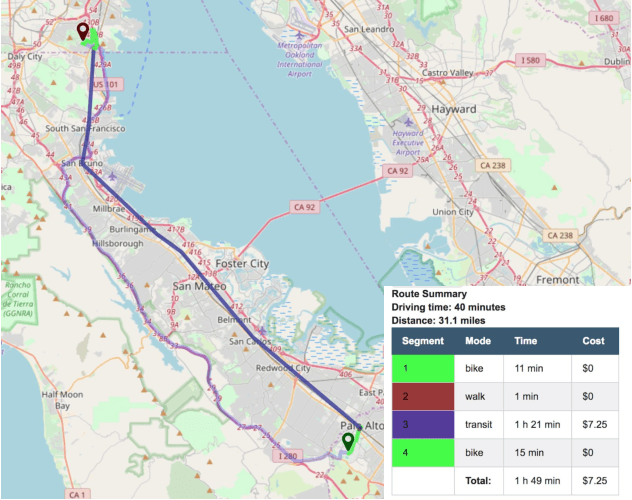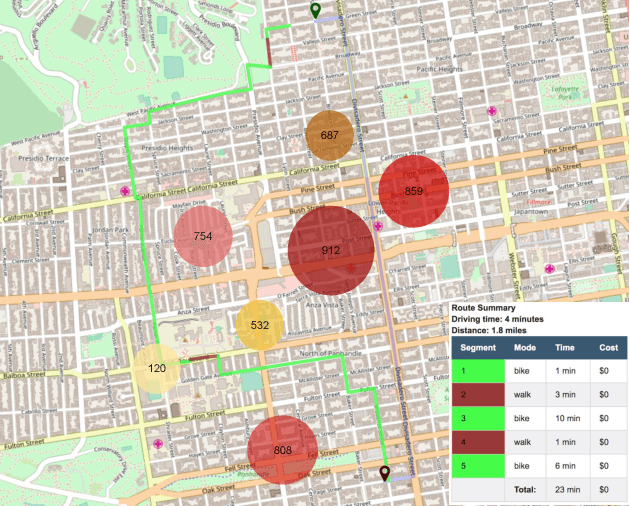An Extensible and Personalizable Multi-Modal Trip Planner
Paper and Code
Sep 25, 2019

Despite a tremendous amount of work in the literature and in the commercial sectors, current approaches to multi-modal trip planning still fail to consistently generate plans that users deem optimal in practice. We believe that this is due to the fact that current planners fail to capture the true preferences of users, e.g., their preferences depend on aspects that are not modeled. An example of this could be a preference not to walk through an unsafe area at night. We present a novel multi-modal trip planner that allows users to upload auxiliary geographic data (e.g., crime rates) and to specify temporal constraints and preferences over these data in combination with typical metrics such as time and cost. Concretely, our planner supports the modes walking, biking, driving, public transit, and taxi, uses linear temporal logic to capture temporal constraints, and preferential cost functions to represent preferences. We show by examples that this allows the expression of very interesting preferences and constraints that, naturally, lead to quite diverse optimal plans.
 Add to Chrome
Add to Chrome Add to Firefox
Add to Firefox Add to Edge
Add to Edge